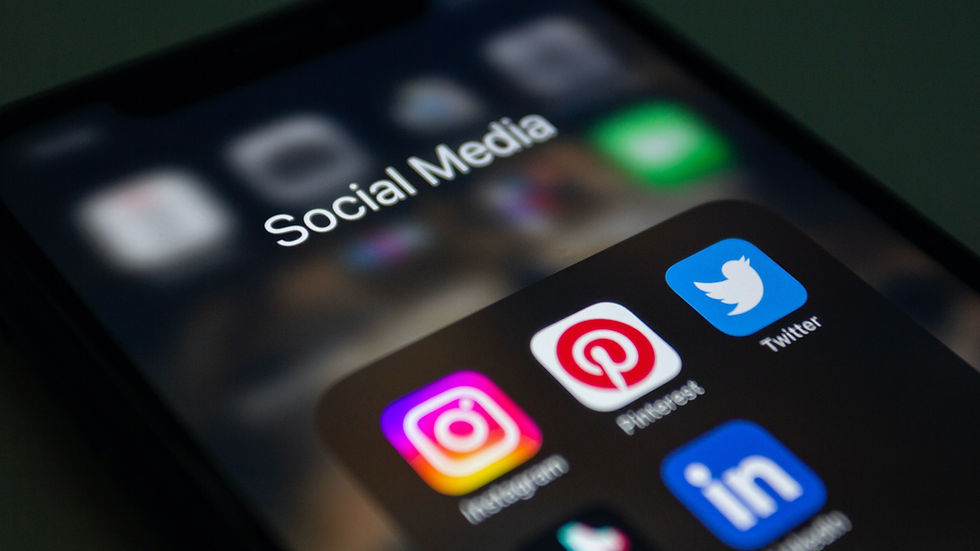FEATURE: Why does Black and Asian representation matter in healthcare?
- Courtney Wood
- Mar 23, 2023
- 3 min read
Updated: Oct 4, 2023
I’m someone who has never had to be admitted to hospital before. GP check-ups were
always quick- no further appointments needed, no raised brows of concern or further testing required. I understand that this is a privilege, having had relatives rushed into hospital for emergency care and scheduled surgeries. The second-hand anxiety and worry is something I know cannot compare to the first-hand experience of encountering these scenarios.
As a Black woman in the UK, I’m aware of the significant factors which lend themselves to additional fear from Black and Brown people encountering healthcare worries. This creates an even scarier environment for them to be in, an environment that white British people are less likely to encounter.
There are specific inequalities within healthcare that exist. The Bradford district of London
has a 50% higher mortality rate for South Asian people due to coronary heart disease, a
40% higher stroke rate for African Caribbean and South Asian, and Black African and Black
Caribbean men are more likely to develop prostate cancer than white men of the same age.
With both of my parents working in healthcare, I’m unfortunately too familiar with hearing
similar statistics. I grew up in a very diverse area of Birmingham, Smethwick, and remember getting pamphlets specifically directed towards our local council providing information on health and disease for Black and Asian residents.
Patients with health issues, particularly from Black and Asian communities, often struggle
with self-advocacy and not having their voices listened to with seriousness and urgency.
About 65% of Black people responding to a survey run by BMJ reported that they have had
prejudiced encounters with doctors and other staff. Patient confidence in healthcare staff is essential so that they can have the best experience. Facing medical racism puts patients at
risk to the point of death. Harmful stereotypes like the strong Black woman within
reproductive healthcare and maternal care create a loss of life.
I stand by #justicefornicolethea, a movement calling for justice in the case of a Black Woman who died due to pregnancy related complications along with the child she was carrying. The campaigning of her loved ones has brought to light important information regarding dismissal of her concerns during pregnancy and a failure on behalf of health services to respond promptly when an ambulance was called for before her death.
Adored and missed by so many, including her fans, her story will stick with me. It brought to light that medical racism is just as real here in the UK as it is in the US. I am not exempt from facing the same treatment as her in the future if I decide to have children. Neither are my black friends. I worry about how I’ll advocate for myself in situations when I’m being spoken over or made to feel dramatic.
Healthcare racism is not limited to just hospital spaces but has a direct impact on public life
too.
East and South-East Asian Communities faced anti-Asian racial violence from the beginning of the COVID pandemic in the UK. A lack of Asian representation in healthcare meant the efforts of many Asian healthcare staff members in COVID patient care was overlooked.
Discovering that 4 out of 5 NHS staff members are white was a startling discovery,
especially since over 1.2 million people are employed by the NHS.
How different would patient treatment be if minority groups were better represented in
healthcare across all positions? I believe this would have a significant impact on the level of
care and understanding provided to patients.
In order to address the health inequalities faced by Black and Asian groups within the UK,
greater diversity in representation amongst healthcare workers is needed. It is important that medical staff can reflect the communities of people they assist, providing cultural intelligence to their work and being an asset, for example by knowing another language. This can overcome barriers of implicit racism.
It is important to have Black and Asian representation within academia and research too, publishing works that contribute to a greater representation, for example within textbooks, so that skin conditions on darker skinned people can be given better treatment with a more accurate diagnosis.
Having groups like the BAME Medics Society gives me hope that change is currently happening to ensure that inequalities are addressed, moving forward to a future where good health is not just a privilege for the select few.
Edited by Caitlin Hart



Comments